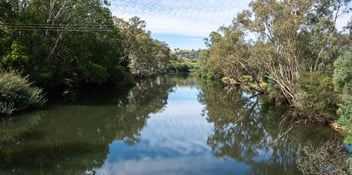Signatories ink Murray-Darling Declaration
Highlighting concerns for the Murray-Darling Basin’s health, 12 leading Australian experts have struck out against current management practices by signing the Murray-Darling Declaration.
The signatories, including water scientists and economists, are urging fundamental changes to Murray-Darling Basin administration, claiming that the billions invested in irrigation projects under the Murray-Darling Basin Plan have failed to produce positive environmental outcomes.
"For many of these projects there is no scientific evidence that they have actually increased net stream flows," the signatories stated, as reported by ABC Online.
"Despite allocating half a billion dollars in 2007 to upgrade water meters in the Basin, as much as 75% of all surface water diversions in the northern part of the Basin may still not have water meters."
With criticisms levelled at the Federal Government and the Murray-Darling Basin Authority (MDBA), the declaration calls for:
- a freeze on publicly funded water recovery subsidies and grants until an independent audit of Basin water recovery is completed;
- an independent economic and scientific audit of all completed water recovery and a full review of planned Sustainable Diversion Limit Adjustments; and
- an independent body to monitor, measure and give advice about delivery of the Water Act (2007).
Declaration signatory and former CSIRO Head of Land & Water Professor John William said the science underpinning current environmental policy is flawed. He has called for immediate action to ensure more water is flowing through the system.
"We've got to have a river system that has sufficient water flow to flood, recharge ground water, take salt to the ocean and provide wetlands and habitat," he said.
"Our current system is not doing that."
Fellow signatory and University of Adelaide Professor David Paton said waiting until the entire plan has been delivered before assessing its success is waiting too long.
"The Murray-Darling Basin Authority simply says, 'we're not expecting recovery until the plan's been delivered, until 2024',” Paton said.
“Well sorry, you've been putting water back. You should start to see some recovery if it's really going to make a difference."
Paton said the results underscore the government’s failure to meet its international environmental obligations.
"The Prime Minister said we're a country that abides by our international obligations. This is an international obligation that all governments are just turning their backs on," he said.
Meanwhile, Murray-Darling Basin Authority Chief Executive Phillip Glyde has denied that investments have failed to produce results.
"Claims that the plan's investment in more modern and efficient water infrastructure is not delivering benefits for the environment are simply not true," he said.
"The Basin Plan was neither expected nor intended to deliver immediate results. It is simply not possible to repair 100 years of damage to such a vast river system overnight, or even within five years."
National Irrigators Council CEO Steve Whan agrees with Glyde, stating that benefits of the Basin Plan will take time to become obvious.
"The important thing about this is to remember we are five years into a plan that is going to take a number of years to implement, but [it takes] decades to see good environmental outcomes," he said.
In response, the MDBA has announced membership of an Independent Assurance Committee (IAC) to provide expert advice on the design, implementation and adequacy of its Basin Plan compliance program.
Specifically, the IAC will develop an annual work program, which for 2018 is expected to include:
- implementation of MDBA actions under the recent MDB Compliance Review;
- advice on the Basin Compliance Compact, which all Basin ministers agreed to develop at the Murray-Darling Basin Ministerial Council meeting in December 2017; and
- progress with Commonwealth accreditation of state water resources plans and the protection of environmental water.
Glyde said the IAC would be made up of independent experts with knowledge across a range of relevant fields, including water and natural resources policy and management, and regulation and compliance.
"I am pleased that Allan Holmes, Lisa Corbyn, Garry Smith and Martin Dolan will be bringing their considerable knowledge and expertise to the IAC," Glyde said.
Holmes was involved in advising the independent panel, resulting in the compliance review report for the Basin last year. Corbyn has previously worked on various water programs and regulation in NSW and internationally.
Smith has worked for Melbourne Water and Goulburn-Murray Water, while Dolan has held a range of roles at the Commonwealth level.
"The establishment of the IAC delivers on an important commitment under last year's Basin-wide review of compliance, and will hold the MDBA to account in fully and proactively discharging its compliance roles and responsibilities under the Murray-Darling Basin Plan," Glyde said.
Glyde also welcomed the nomination of Dr Wendy Craik as the independent and eminent person to bring together the findings of the various compliance reports and provide advice to ministers on implementation of Basin-wide compliance arrangements.
Learn more about the Murray-Darling Declaration signatories here.

